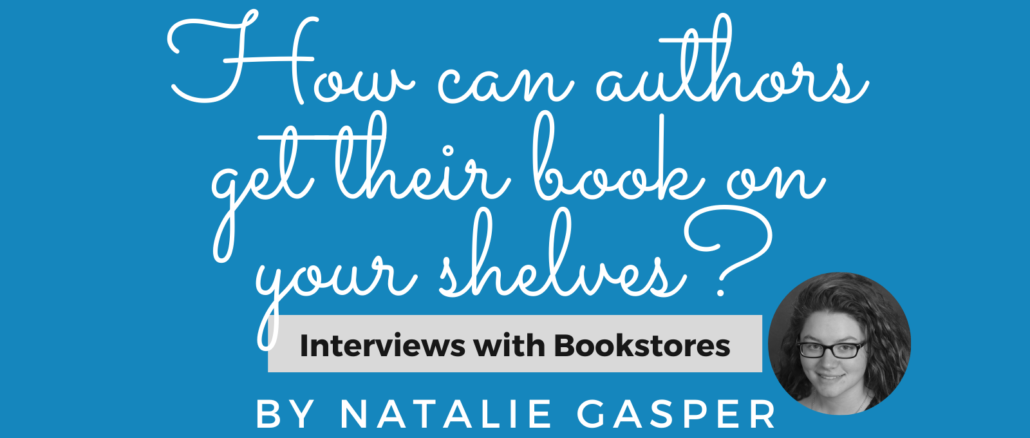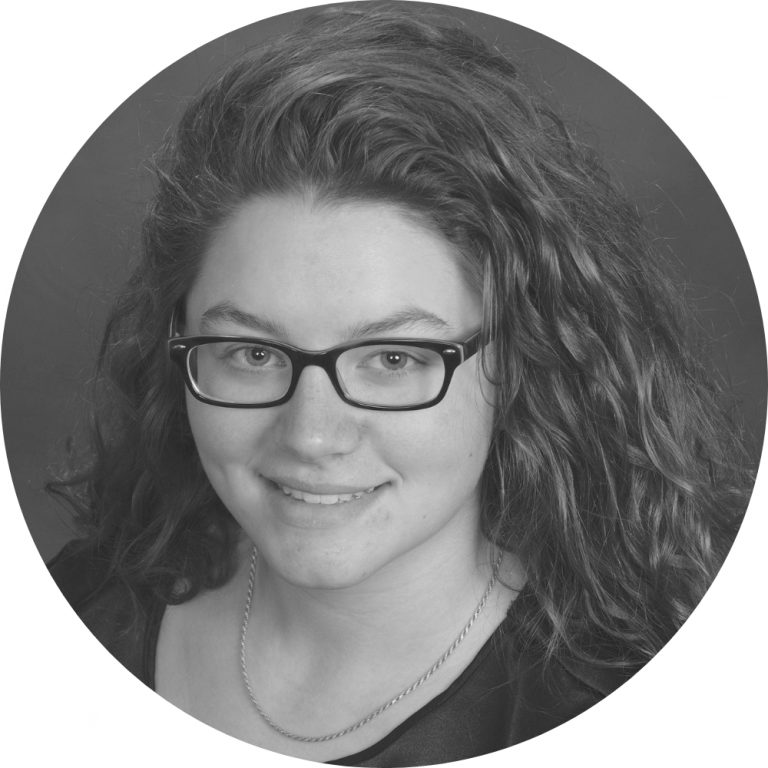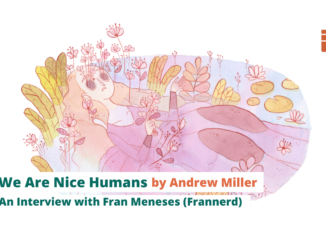
In this six-part series, we asked bookstores across the United States to answer some of your burning questions.
- How can authors get their book on your shelves?
- Do you accept self-published authors? In what situations would you consider this?
- What’s your processing for vetting books?
- How can local authors develop a relationship with you?
- Do you host author/book signing events/readings?
- Is there anything you would recommend to authors/publishers about how to best position their books in the market?
Part 1 below gives you an inside glimpse to how authors can get their books on the shelves of 49 bookstores across the country.
Part 1: How can authors get their book on your shelves?
Utah: The Printed Garden
Most of the books in the store arrive one of two ways. Our new books are all bought from publisher sales reps who visit the store two to three times every year to show us the new books being released. Because the amount of books being released every year is so vast, a bookstore, even a really large bookstore, only really brings in a fraction of what is being produced.
The people who I work with from each publishing house are really good at taking the time to get to learn the character of each individual store, and what types of books tend to sell well in a given location. Because I’m a smaller, independently owned store, they’re less inclined to encourage me to pick up books by the same types of authors who you might find in an airport bookstore, and more likely to recommend books considered more literary, things that may not have been discovered without a little help.
One of my jobs is to read ahead as aggressively as possible to vet titles for the store. Because of the sheer volume of books constantly being introduced to the market, this usually boils down to my finding three or four things every month that I’ve really loved and want to champion. Then I listen – and that’s also really important in small stores. Much of the other books I carry will be based on books that are loved by the folks who visit the store, and books that they’re excited about.
The secondhand books come into the shop in a very different way. Before the Covid-19 pandemic, I was out in the world one to two days a week actively looking for secondhand books, and there are a lot of good places. I go to library books sales, thrift sales, storage units, thrift stores, estate sales, and pretty much anywhere else I might find good secondhand books in nice condition.
With an open shop, I also have customers bringing in books that they no longer want, usually two or three boxes at a time. Because the store is small, I have to be very selective. Every book has to have a reason for being on the shelf. There’s simply no room for filler or fluff.
California: Books Inc.
Books Inc. loves supporting their local authors, so if you’re published by a traditional publishing house, all you have to do is stop by your local Books Inc., introduce yourself to the manager or buyer and let them know what your book is, the ISBN, and who it’s published by. Ideally, you’d also be able to bring a copy of your book in for our buyer to look at.
If you’re published by a smaller press or self-published, we will also carry your book in our stores! If your book is available for us to purchase from Ingram, the largest supplier for Independent bookstores, at a regular discount, then we’d be happy to bring you book into the store.
If your book is not available via Ingram or is a short discount for us, we have a consignment program that you can find here on our website. Like I said, we love to support our local authors so we do what we can to get their books into our stores.
New York: Rough Draft Bar & Books
We encourage authors–local or not–to email us at any time to let us know about new offerings or upcoming releases. It really helps if these authors show some familiarity with our shop, our selection of books, and–at least in normal times–that they can explain why their book would be a good fit for our community of readers. We have a very small staff, so any personal connection an author can make beyond a form email is encouraging. We also–again, in normal times–run a monthly local author showcase, where we invite authors to meet-and-greet and sell on consignment, as well as a Monthly writer’s Retreat, which is by application, and includes a two-night stay in a local apartment, a reading event, and air time on Radio Kingston.
Georgia: Hills & Hamlets Bookshop
We have a detailed section for authors on our website, but the number one way an author can get their book on our shelves is by being a regular customer of our bookstore. We constantly have local authors come in, announce that they’ve never been in the store before despite living nearby for 20 years, and then ask us to carry their book that they published through Amazon.
If you are an author and want your book on the shelves of brick and mortar bookstores, then you need to be a vocal champion of local indie bookstores. Buy books from your local bookstore instead of Amazon, link to indie bookstores on your social media, etc. Understand that Amazon is basically a curse word for most indie booksellers. Make the effort to understand the perspective of indie booksellers before you approach them. The American Booksellers Association (ABA) has some great resources to help authors with this as well.
New York: Postmark Books
With few exceptions (and for many reasons!) we only stock books from established publishers large and small. We have some guidelines for smaller presses and their authors on our website here, but we’re essentially looking for a brief pitch that includes your marketing plan, an overview of the book and its main selling points, your target audience, and then a review copy of the book or sample chapter.
These are all the things we look for from major publishers when deciding what to stock, so when we’re meeting a potential new partner we need those same points to understand where it will go in the store and how we’ll position the book to customers. Usually at this point we can literally picture the actual customer who will want it, and if that happens then we’ll definitely carry it!
An important thing to remember is that a rejection doesn’t mean there’s something wrong with your book; it’s just a reminder that not every book is for everyone or for every community. We don’t do a brisk business in thrillers and mysteries so we stock very few of those, but there are entire bookstores devoted solely to mysteries! It’s a huge booming business, just not in our store. The trick with book sales is finding the stores who are most likely to do well with your book and then focus your energy on those.
Maine: The Owl & Turtle Bookshop
It’s a good question and one without a clear, concise answer. Like much of life, a good deal is contingent on timing. If the book is written by a Maine-based author or takes place in the state, such works are given priority as that is something for which our customers often ask. I don’t necessarily like the “cold call” approach when an author comes to the desk and gives an impromptu pitch. It’s too charged on both ends as they are laying their work (sometimes their very hearts) on the line and it’s not easy or right that I am in a position to give a quick hard “yes” or “no”.
That said, if we naturally start talking and they mention their book, maybe leave a copy or leave a card, I usually do follow-up research quickly. Follow-up on their end is good, how it is performed is key. When an author barrages us, we don’t carry their book. When they politely follow up and keep in touch, we often try. Lastly, there are the logistical issues of space and the fact that we do know our customers. We only have space for so many titles and we do know when a book–even an objectively good book–won’t work for us.
Utah: The Book Bungalow
If an author is local (meaning from Utah or neighboring states…I’ll even consider from the West) and traditionally published, they should send me details about their book. If I’m intrigued and can see it appealing to our customers, I’ll order a copy or two from Ingram and shelve it according to genre, as well as on our Local Authors Shelf. If they’re traditionally published and from other parts of the country, I’ll still consider ordering and shelving by genre if I think it will sell.
Missouri: Skylark Bookshop
We curate our stock with great care – that’s the reason that people keep coming back to us, because they know they will find interesting books that they might not find elsewhere. We do this in a number of ways – as far as back list goes at this point it’s based mainly on staff suggestions and customer recommendations.
As for front list titles, we meet with sales reps from all the major publishers twice a year and discuss which titles would be a good fit with the shop. We also receive lots of ARCs and galleys from publishers, of course, and read those enthusiastically. We talk to other booksellers and pay attention to word-of-mouth and what other booksellers are reading and raving about. We know our customers very well and can usually work out quite quickly whether a given title would be a good fit for the store.
We do also get direct solicitations from authors to stock their books, but (save for self-published authors, discussed below) these tend not to be successful unless a title is a particularly good fit for the shop.
Ohio: Wheatberry Books
Just ask! Authors who are willing to build a relationship with booksellers will often find a cheerleader for their work. An impersonal email often gets passed over, but a genuine and informed request for us to stock the book will not go unnoticed. We like for authors to be able to list our bookstore as a place to purchase their books. Authors who champion indie bookstores will find a wealth of support from them.
New York: Off the Beaten Path
The first step an author would want to take is to make sure their book is available through Ingram. Ingram is where I do 90% of my ordering. Don’t cold call (cold e-mail is fine). Don’t mention Amazon in your pitch. Specifically don’t mention that it was a bestseller on Amazon. Every book ends up being an Amazon bestseller in some small obscure subsection of a genre. When an author does reach out, presentation matters. Have a book cover, an author photo, a brief summary of the book and why the book matters. Be compelling.
Nevada: The Writer’s Block Book Shop
At the moment, we only carry traditionally published books. We review upcoming titles on a per publisher basis, sometimes with the assistance of a sales rep, and order the entire season en masse. Sometimes, we’ll receive an email or letter from a traditionally published author requesting that we consider their book. This makes a great impression, and will often result in my requesting at least one copy of their book when I do my order.
Pennsylvania: City Books
City Books is Pittsburgh’s oldest book store established in 1984. It’s a used book shop, as well, though I do carry a few new books by local and regional authors. The best way for a new author in the tri-state area to get a book on my shelves is to have their publisher contact me.
I’m a big supporter of University and independent presses and like to build relationships with smaller houses. Otherwise, the best way to get a used book on my shelves is to contact me with a list of titles or with photographs of the books. Generally, I take trade-ins for store credit, but I also take donations if I am able to pick through the offerings. Generally, I don’t buy books.
New York: Berl’s Brooklyn Poetry Shop
Though in these challenging pandemic times the shop is not ordering new books for now, usually we aim for an active and thoughtful curation of the books coming into our shop. We strive to read almost every book that comes in and research all the time, with a particular focus and attention to small independent presses and recent releases, ordering the large majority of our books directly from presses and distributors. Authors are welcome to reach out online or especially in person in our shop if they are local and that is possible.
Oregon: Jan’s Paperbacks
I’m one of the easier bookstores to get in to. I’m a used bookstore, so someone can donate them to go onto the shelf used just for exposure. But, if you want to sell them new I do consignment at 40%. I don’t have any qualifications for having the books, but if they haven’t sold in 6 months we need to go ahead and change them out or remove them. We are limited on shelf space here, but I’m willing to give anything a shot.
New York: 192 Books
Authors can get their books on our shelves by talking to the buyer and seeing if the book is a fit with our store’s profile. As a shop, we focus on art books and literature in translation, and take pride in keeping our small space well curated – stocking books that you can’t necessarily get at any bookstore, at the expense of stocking some of the more popular genres and titles.
If you have the book already with a distributor, you can ‘force’ us to have the book by ordering it through us, or getting friends to do so – this will get your book in the store for a bit, though if it’s not a great fit for the store, it won’t be re-ordered after that.
Washington: BookTree
If someone wants a book I don’t have, they can order it through me and I will get it — usually within a few days. So if two or three people walk into the store and order a book, I don’t have, I will order a few extra copies to have in the store since it seems like there is demand for that title. The book needs to be available through Ingram.
If it is not available through Ingram, I don’t have time (usually) to do extra research about the book title. If an author knows that my bookstore, BookTree in Kirkland is particularly friendly and open to carrying books of all kinds, they might mention in their social media and in their emails and in their marketing materials that the best place to buy the book is independent bookstores and some of the better stores that carry or are happy to order the books are…. BookTree in Kirkland Wa.
Alabama: Ernest & Hadley Booksellers
First and foremost, authors need to show an interest in the store by shopping here and showing interest in other author events. It’s amazing to me that some authors walk in the front door, plop their book on the front desk, and demand that the book be in our store without ever setting foot in the store.
California: Skylight Books
Authors reach out to Skylight Books all the time by email. A concise and informative email with an image is the best way to get the book buyer’s attention. It’s good to know your audience – does the book take place locally? Is the author local? Does it seem like it would appeal to our store’s specific community of readers? Glaring grammatical errors and links to “check out my book on Amazon.com” are not the ways to get to an independent bookstore’s heart.
Louisiana: Cavalier House Books
I always think of this as sort of a chicken and egg problem. Of course it’s difficult to sell a book if it’s not on the shelf, but it’s also fruitless to have a book on the shelf if it’s not going to sell. I always encourage authors to focus on the demand and the market for their book. Any independent bookseller worth their salt will track down a publisher or author no matter how obscure if their community and customer base is interested in something specific. For us to include something within the selection of titles that we are curating we have to have that strategy for connection.
California: Borderlands Books
Honestly, the best way is to be published by one of the major publishers who have a solid network of reps who promote their titles. But, if that’s not the case, the best way is to send a copy of the book along with a carefully written and proofed letter, not more than one page long, describing the book and how it fits within the store’s specialty (if any).
Colorado: Old Firehouse Books
We are lucky to have a brilliant book buyer at our store who handles ordering titles from the bigger publishers. For smaller publishers and self-published authors, we do accept and consider books we are told about via email. Depending on the book’s distribution, its genre, and overall appeal to our readership, it may be something we think could do well on our shelves and we may just give it a try.
Minnesota: Beagle and Wolf Books & Bindery
The majority of the books on our shelves were ordered from publishers. We order them for a variety of reasons: we’ve read an advance copy, we’re familiar with the author’s work, we’ve read favorable reviews, or our rep has encouraged us.
We do accept books on consignment. Because our space is limited, we give preference to local authors and/or topics. The authors of books we have on consignment have approached us about carrying their books.
Texas: BookPeople
I frequently get emails directly from authors who may not be published by one of the bigger publishing houses from whom I see sales reps. While I can’t take on everything, I do carefully consider all of these requests. It always helps if the author can provide a galley or sample copy, that way at least one of our staff can read it. So much of our success and customer connection comes from bookseller recommendations, so it’s a big help (for both us and the author) if we can get an initial read.
Colorado: Barbed Wire Books
I get about 20 requests per week from authors who want me to stock their books. If I receive a succinct e-mail, with only pertinent info, no spelling or grammatical errors, no attempts at cuteness, I am less likely to simply delete it.
I have a couple of forms that I’ve created that help me to determine how serious the author is about having their book succeed. I ask what their marketing plan is- just having the book in a bookstore does not mean it will sell.
Because of the number of requests, I tend to focus on local authors and children’s books with a specific message.
Indiana: Indy Reads Books
We do accept books on consignment from authors but only if they have done an in-store event with us. We find the appetite for consignment items is much greater if the author has made an appearance and done some Q and A and some signing of books. Unfortunately we are not open for browsing at the moment due to the virus and are not taking any new books on consignment.
Mississippi: Lorelei Books
I require they first send us a review copy, because I have found some books to be poorly edited and not worthy of damaging my reputation by selling customers an inferior product. Although consignment sales can be a hassle to keep up with, I am often willing to consider a small quantity of consignment books on my shelves as a test. If the book does sell, I am happy to reorder.
Connecticut: Breakwater Books
If someone has a book available from a wholesaler, after we review the book and think it will sell in the store, we will purchase it from our wholesaler. We accept submissions from walk-ins and from the mail. If a book is not available from a wholesaler, after review to determine that the book is appropriate for the store, we will accept it on a consignment basis. We offer a split of 60% to the author and 40% to the store. There is an initial $25 fee that we charge for consignments that cover our administrative costs.
North Carolina: Malaprop’s Bookstore-Café
The easiest way is to have distribution. We love working with and supporting self-published authors through our consignment program, but that can often be a time-consuming process. As a store that’s ordering tens or even hundreds of titles every day, being able to order things quickly and efficiently is important to us.
That being said, you can still be self-published and have distribution. We’re always happy when authors have gone through a wholesaler like Ingram, though we do look for specific terms through them, like a standard trade discount and returnability. We want the former because the margins on books are already tight; and we want the latter because we want flexibility in what we carry.
Massachusetts: Eight Cousins Books
The best option is through publisher reps. For independent authors, I recommend connecting with a company that has established relationships with the independent bookselling community. Connect with the local paper to see if the entertainment editor will do a review.
Minnesota: Fair Trade Books
We use Ingram and the major book publishers to source new books to display. Most of our books are gently used new and classic releases. For local authors, we request that they come to the bookstore for a Saturday afternoon book signing, to introduce themselves to our reading community.
Nebraska: The Bookworm
We take just about any book on consignment. If the book is written by a customer of the store, it’s accepted with no questions asked. If the author is not familiar with The Bookworm, I determine whether or not it might be a good fit.
North Dakota: Main Street Books
Authors can get books on our shelves if they are self-published titles and the author lives in the area and we decide it is a good fit for our general interest store. In that case we only do consignment unless the book takes off and sells well.
They can also get books on our shelves if they are self-published author and don’t live in the area and it has local interest … and we decide it is a good fit for our store. We still only do consignment.
We also order from major publishers. We look at thousands and thousands of titles 4 times a year on Edelweiss and order through our sales reps.
Ohio: The Book Loft
Typically, we buy almost everything available through traditional publishing houses via Edelweiss, the main go-between for bookstores and publishing reps. However, there are cases where we buy directly from publishers or local authors, depending on the book’s availability and salability.
Connecticut: Barrett Bookstore
If they aren’t working with a publisher and have done their research/think their book is a good fit for our market, we’re always happy to review advance copies and discuss whether or not the book is a good fit for our store.
New Mexico: Bookworks
Right now during the COVID pandemic, we are not accepting new consignments, but typically, authors need to send us one copy to review with a letter as to what they would do to market their book through our store, why it would be a good fit for our clientele, and good information about how to contact them. Any books we do not consign, we donate to the library.
Maryland: Cricket Book Shop
IF a local author has a book they can bring it in and we will put it on the shelf on consignment. But having anyone else that is not local but self-published is not good for me because I am a small store and do not have the space for all the self-published books in this universe.
New Jersey: Little City Books
Donna Garban and I do all the buying for the store. We work closely with publisher reps of large and small companies to select books that we think will do well in our store, or that we just find really compelling and want to take a chance on. Sometimes we choose books that we feel contribute to the depth and breadth of our selection, or are particularly relevant in the national conversation.
South Carolina: Fiction Addiction
For local authors:
- if traditionally published thru one of our regular vendors, let us know and we’ll order direct from your publisher.
- otherwise, use our consignment program. Details at fiction-addiction.com/media/pdfs/consignments.pdf
For non-local authors:
- if traditionally published we will stock your book as part of our regular ordering process if we think it will sell for us. If you have some sort of tie to Greenville (relatives here, grew up here, graduated from Furman, etc.) let us know.
- otherwise, we only stock non-local, self-published authors through DartFrog Books (dartfrogbooks.com/).
North Dakota: Ferguson Books & Media
Very simple. Any author can get his/her books on our shelves by dropping by and filling out a quick consignment form. We ask that we get no more or fewer than 6 copies per title per store. We give everyone a 90 days period in which, if the book is selling, we make sure the author gets paid and restock the titles.
If the book is not selling very well, we reserve the right after 90 days to ask the author to come back and retrieve his/her books and will pay for any sales. We usually roll over the 90 day contract for most authors, but when we have times where books have sat too long, we’ll ask the author to come pick them up or ship them wherever at the cost of the author.
Massachusetts: The Bookloft
We carry books by a number of local authors who have contacted us directly. Those whose books are available through Ingram, we can order directly to see how they sell. Others provide them to us on consignment.
Illinois: 57th Street Books
We currently consider ~30k titles per year for our shelves. We do this through publisher reps and publisher and distributor catalogs. Authors should work with publishers and distributors who will do best by their work.
New Hampshire: A Freethinker’s Corner
First and foremost, call or message to find out what the store’s policy is for local/indie authors. It spells out what the store accepts (the genre(s) if it’s a specialty store, what is considered “local”, etc), if there is a form to fill out, who to contact, any fees associated with the initial inquiry, etc. Don’t just come in with your book and tell us you want your book on our shelves.
South Carolina: Main Street Reads
Send an ARC (advance reader copy) along with a tip/sell sheet and cover note about why it would be a good fit for our store, if author is available for events (live or virtual).
Arkansas: Dog Ear Books
For any consignment authors we have them fill out a form for us to look over what they have. The link is here: ilovedogear.com/consignment. As long as they meet the requirements listed on the form we’ll consider them.
Pennsylvania: Bindlestiff Books
We generally order books that we believe will appeal to people in our neighborhood; ours is a small store and most of our customers walk to us. We order through distributors and on occasion direct from publishers.
Florida: Bookstore1Sarasota
We stock new books from established publishers. We pay attention to reviews and bring in those books our experience tells us our customers will probably like.
Oregon: Chapters Books & Coffee
As a small bookshop, a book really needs to look professional for me to pick it for my shelves. I do not have the money to take a lot of chances on a “maybe” book.
New Hampshire: Gibson’s Bookstore
Most titles–almost all–are sold to us by publishers.
Vermont: Bennington Bookshop
We offer a consignment plan for local authors who would like to have their books in the shop. There’s information and a form here: benningtonbookshop.com/authors
INTERVIEWER
Natalie Gasper is an internationally performed poet whose work has appeared in The Write Launch, The Hickory Stump, Sheila-Na-Gig, Noon by Arachne Press, and ellipsis…literature & art, amongst others. She works as an interviewer for The Nasiona and is a developmental editor for Envie, a Magazine for the Literary Curious.




13 Trackbacks / Pingbacks
Comments are closed.